Body Art Vs. Protestors: Art Exhibition Or Exhibitionism?
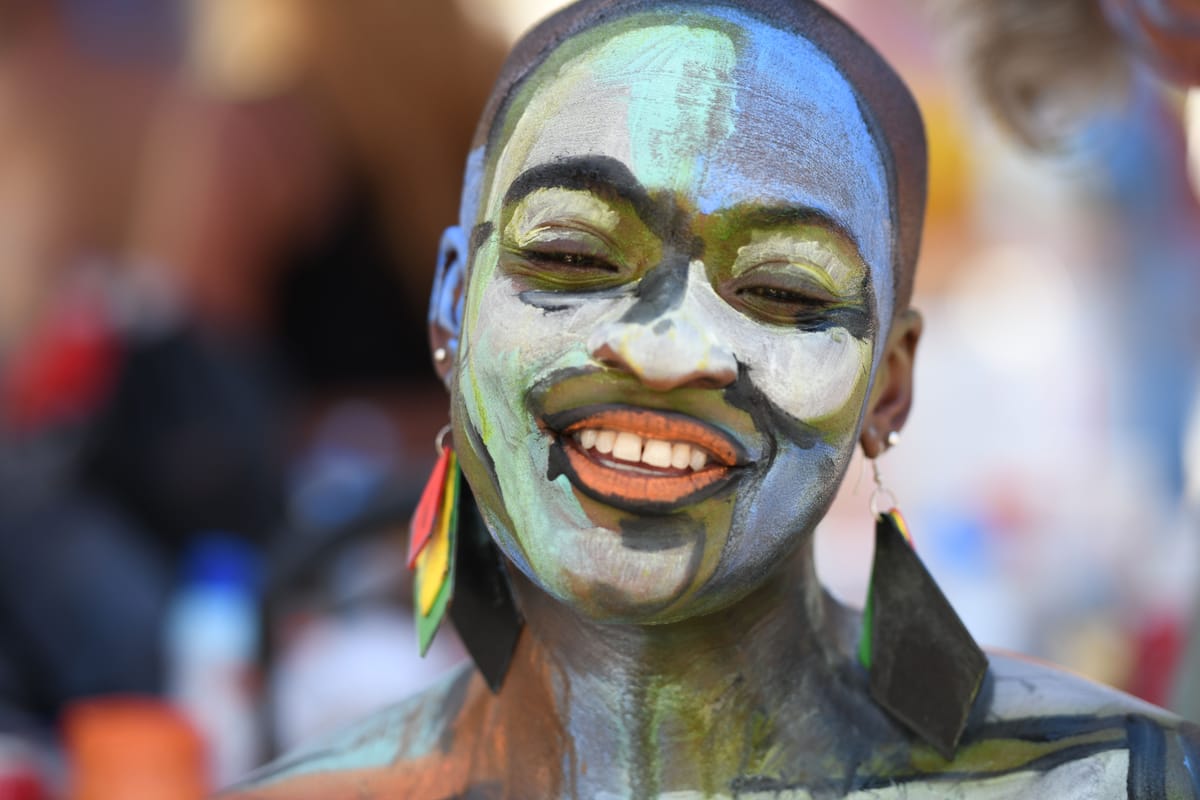
BUSHWICK – Scores of people stripped down to their birthday suits for artists to paint their bodies—head to toe in multi-colors, flowers, and messages of love—as part of NYC Bodypainting Day this past Saturday, July 20, in Maria Hernandez Park in Bushwick.

While most people enjoyed the art, chuckled at the fun, or just shrugged, a handful of demonstrators protested against the nude body painting in a public park, with a few even saying it was “illegal.”
Bodypainting Day is sponsored by the art group Human Connection. The event is part of a series of bodypainting happenings in which people go nude except for body art. Human Connection joins many big events across the city throughout the year, including the Mermaid Parade, Pridefest, Protest Against Divisiveness, and the Halloween Parade.
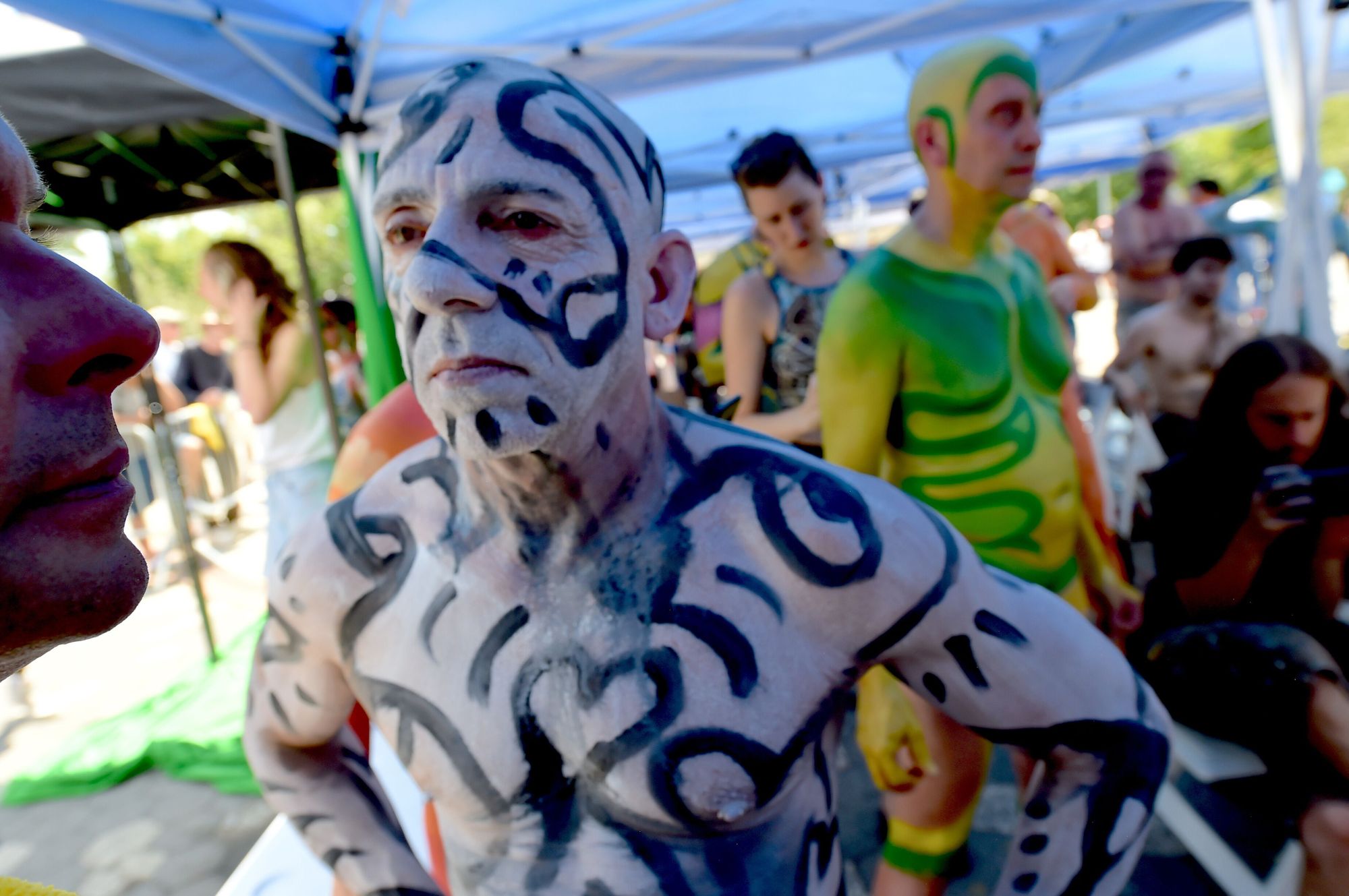
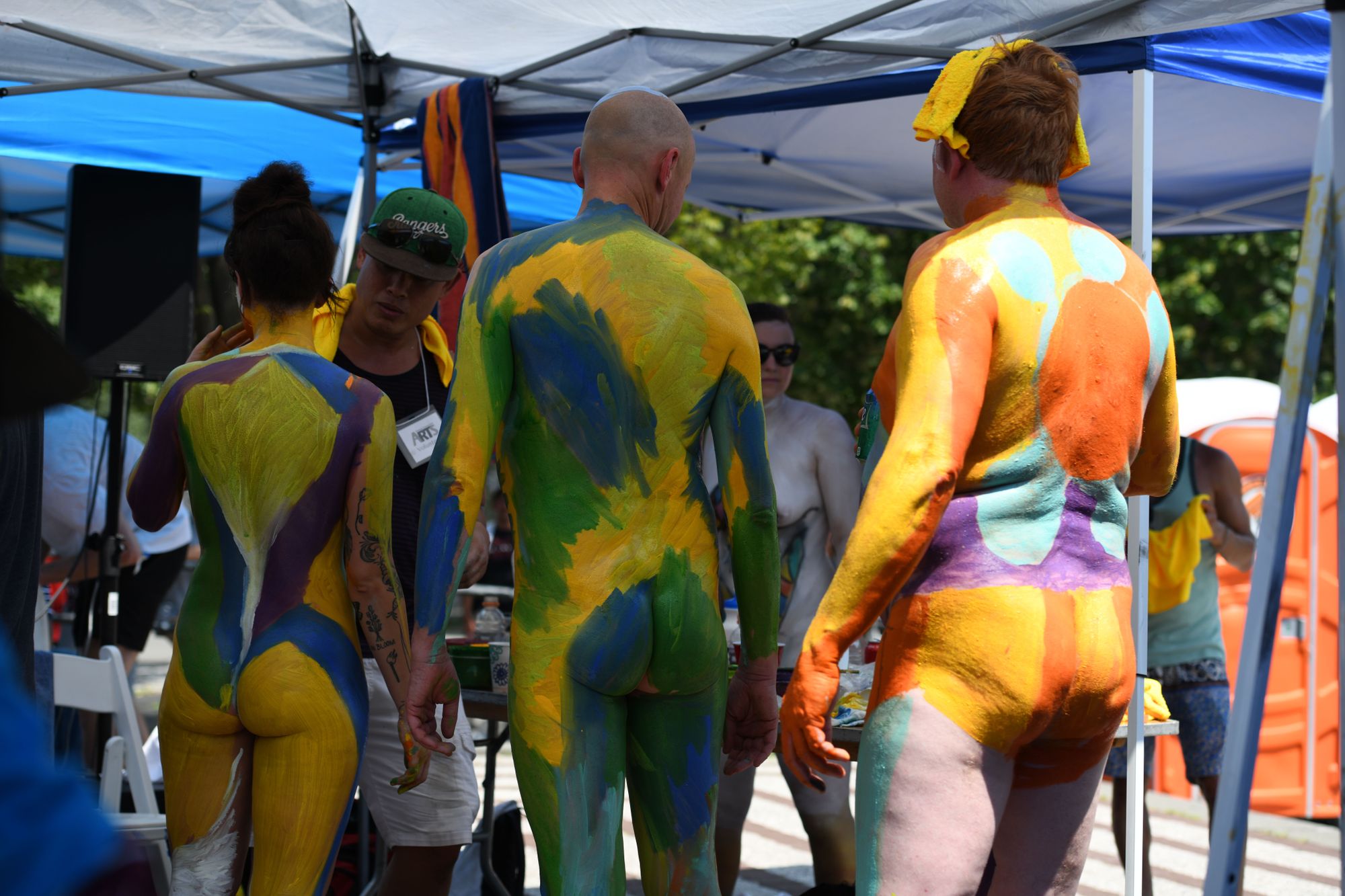
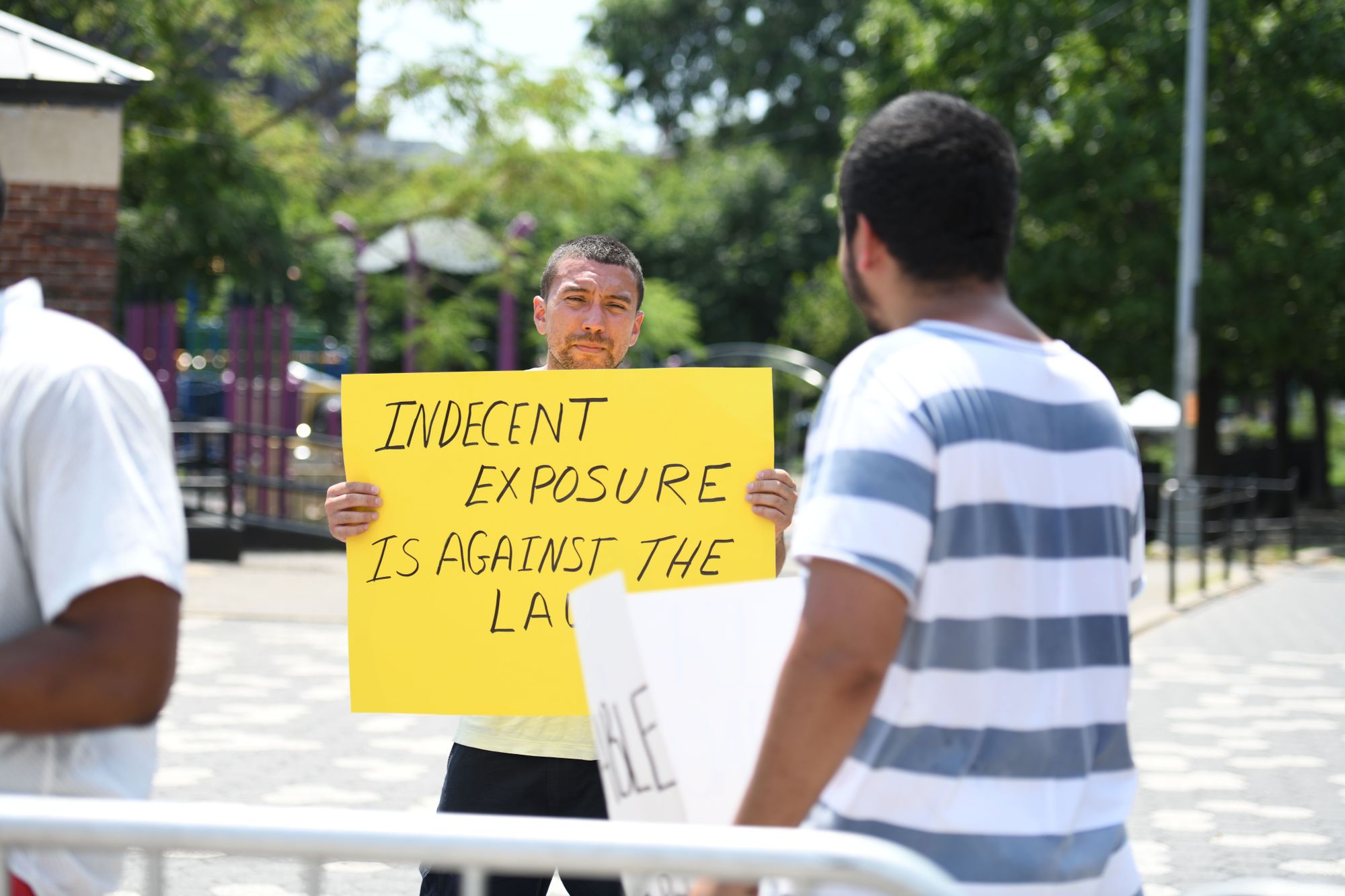
A half dozen people protested on Saturday and held signs indicating their displeasure with the body art being displayed in a public park.
Justin Rivera, 28, of Bedford-Stuyvesant, stood with several other protestors who frowned upon the human canvasses and held up signs condemning their presence.
“I don’t have a problem with artistic expression, but I do have a problem with the nudity,” Rivera said. “You have kids walking back and forth looking at this and this shouldn’t be.”
He likened it to cursing out loud in a restaurant and said it might provoke negative responses, including physical altercations.
“They say it symbolizes unity, but it is just an excuse,” he said. “They come from all over, Ohio, Oklahoma, Canada and do what they do. It just isn’t right for the children to have to be exposed to that in a public park.”
George James, 40, a resident of Bushwick also condemned the bodypainting in a park. He called it “illegal” and said they “should not do this in a public place.”
“These people have no sense of modesty and they come from all over to walk around here naked, and it just isn’t right,” he said.
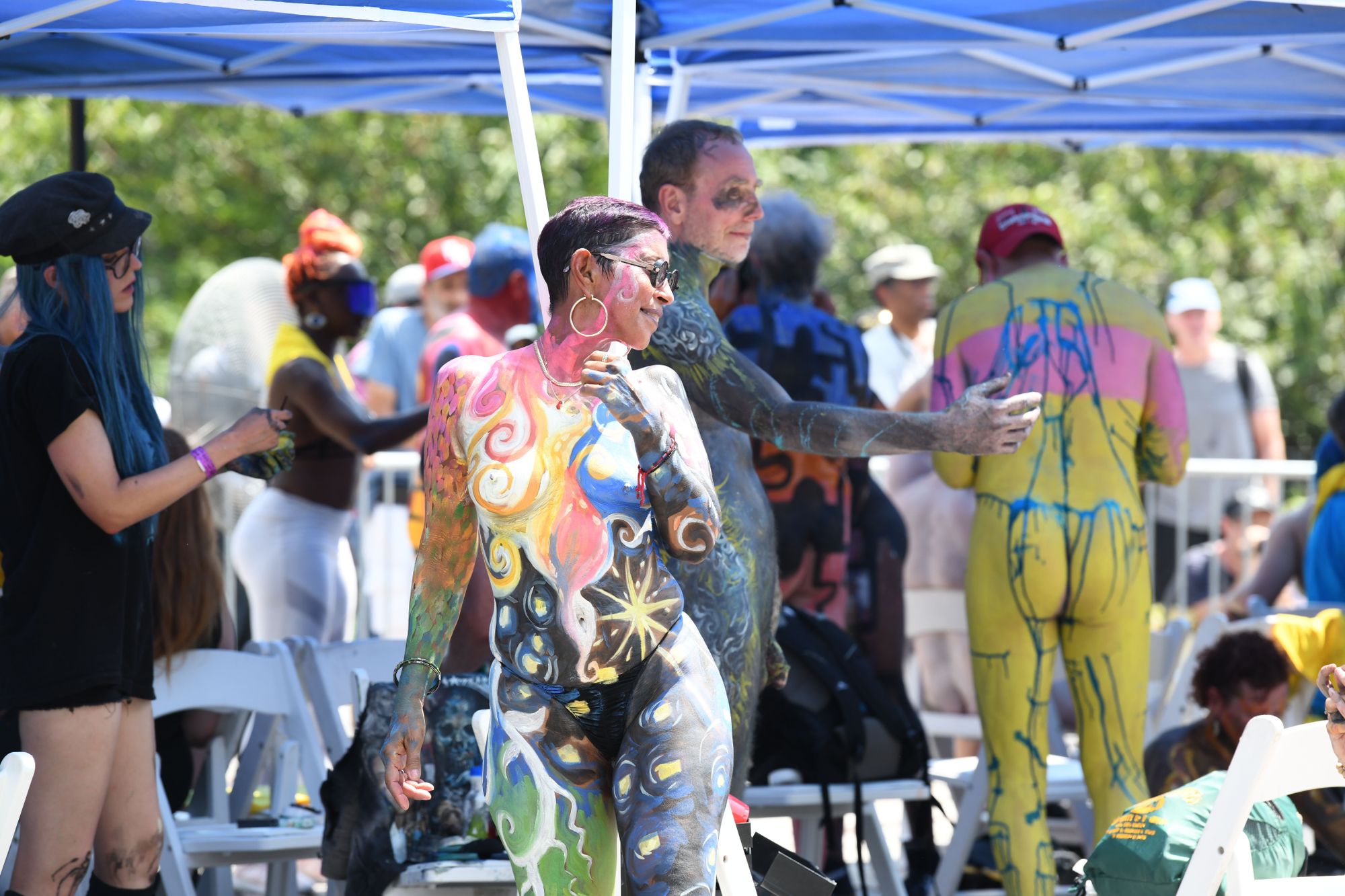
The human canvases and their artists disagreed. Vivian Ortega, 60, of Riverdale in the Bronx said she is proud of her body. This was her first time participating in the event.
“I think they have a right to say what they want, but this is a good thing for people to not be ashamed,” she said.
Glen Millican, a resident of Boston, painted Ali Cata of Cleveland, Ohio. “I have no idea what I’m doing, but I’m doing it anyway because it just feels right.”
Kayline Duke, a designer and artist from Dallas, Texas, painted a mural on Kevin B., 58, of the Bronx. “I come just for this to paint on people’s bodies and to be free. It frees you and it is unique to paint on a live canvas,” she said.
Her canvas agreed. “It’s exhilarating, one of the few things I’ve never done. It’s fun,” he said as he showed off a face painted on his chest down to his knees. “They have their right to protest, I have my right to the arts and it really frees you.”
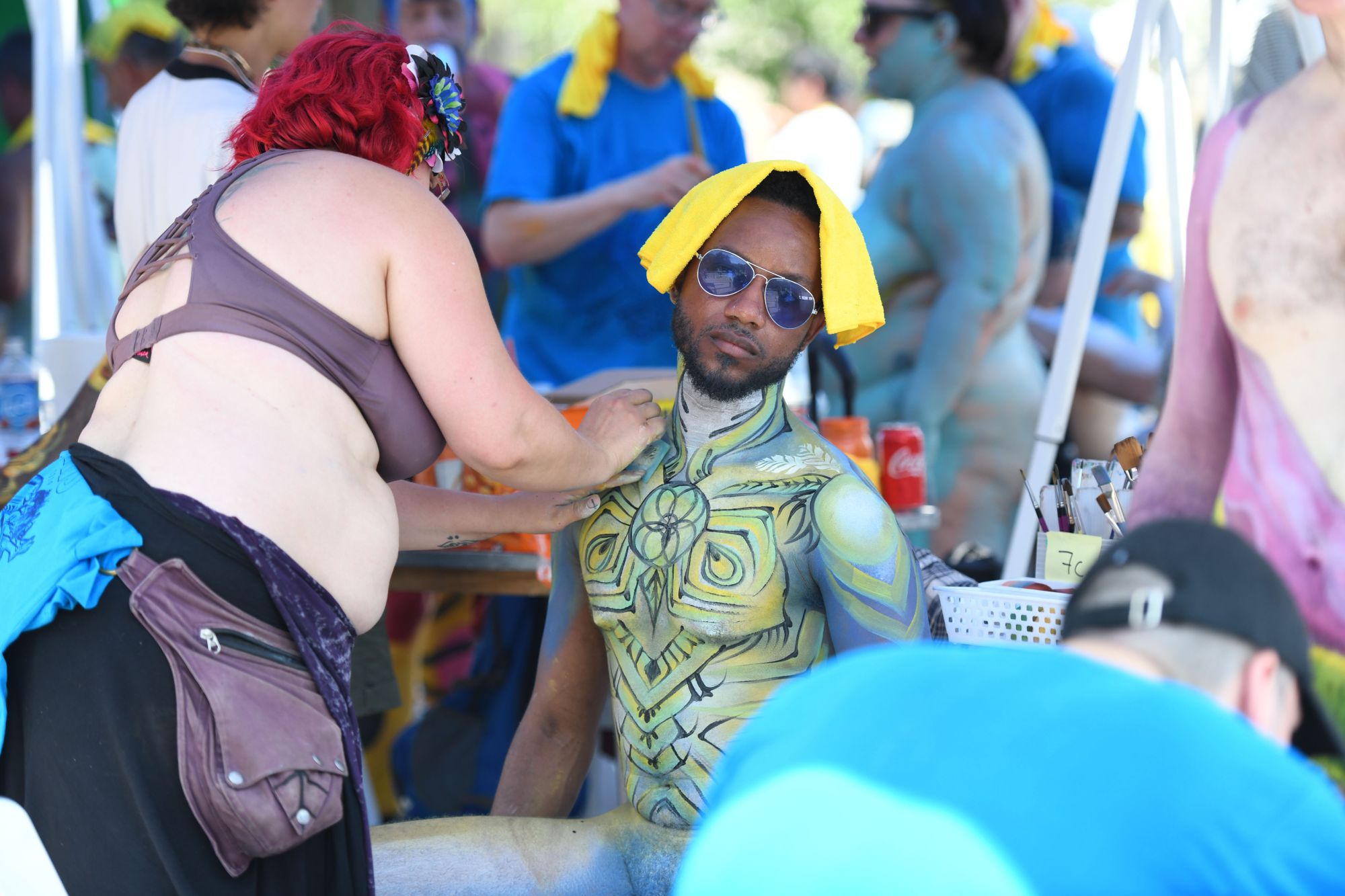
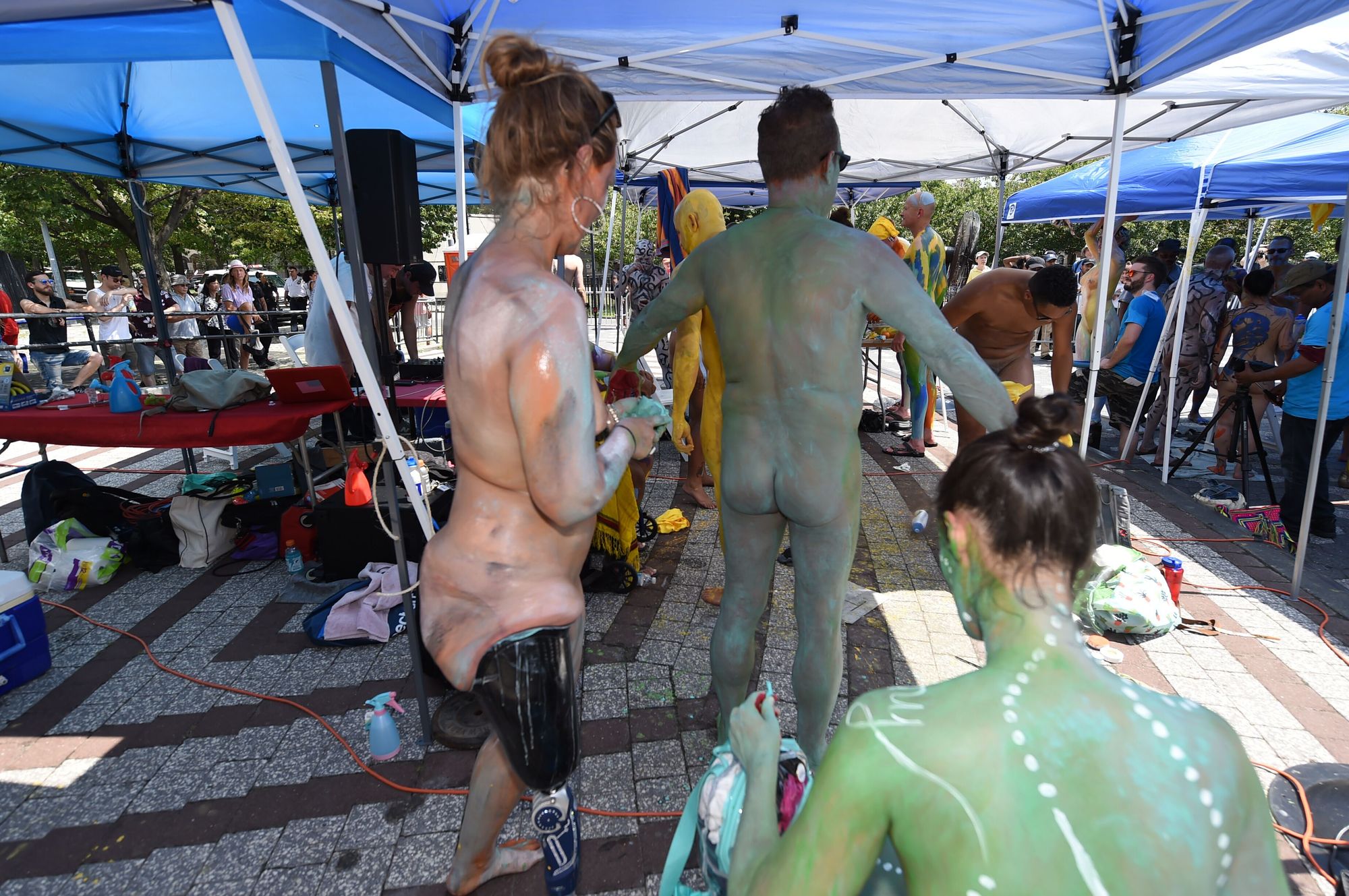
Lilly Chu, 35, of Staten Island also took part in the Times Square Unity March last month and said she will continue to take part in these events. “We are making art, and it’s our right to make art. They can say what they want,” she said.
Howard Goldman, 57, of East Northport, Long Island said the event is “promoting positive body image—a purpose of existence.”
“This is about happiness, cheer, and positive vibes,” Goldman said. “It’s America and they can say what they want. It is their right to protest, but if they don’t want to see us, they can go to the rest of the park without viewing us. Our choice is to create art, and it’s legal to be nude for art purposes and there is nothing wrong with it. Other men see it, shouldn’t be ashamed of their appearance, and should be proud of what you look like and who you are.”
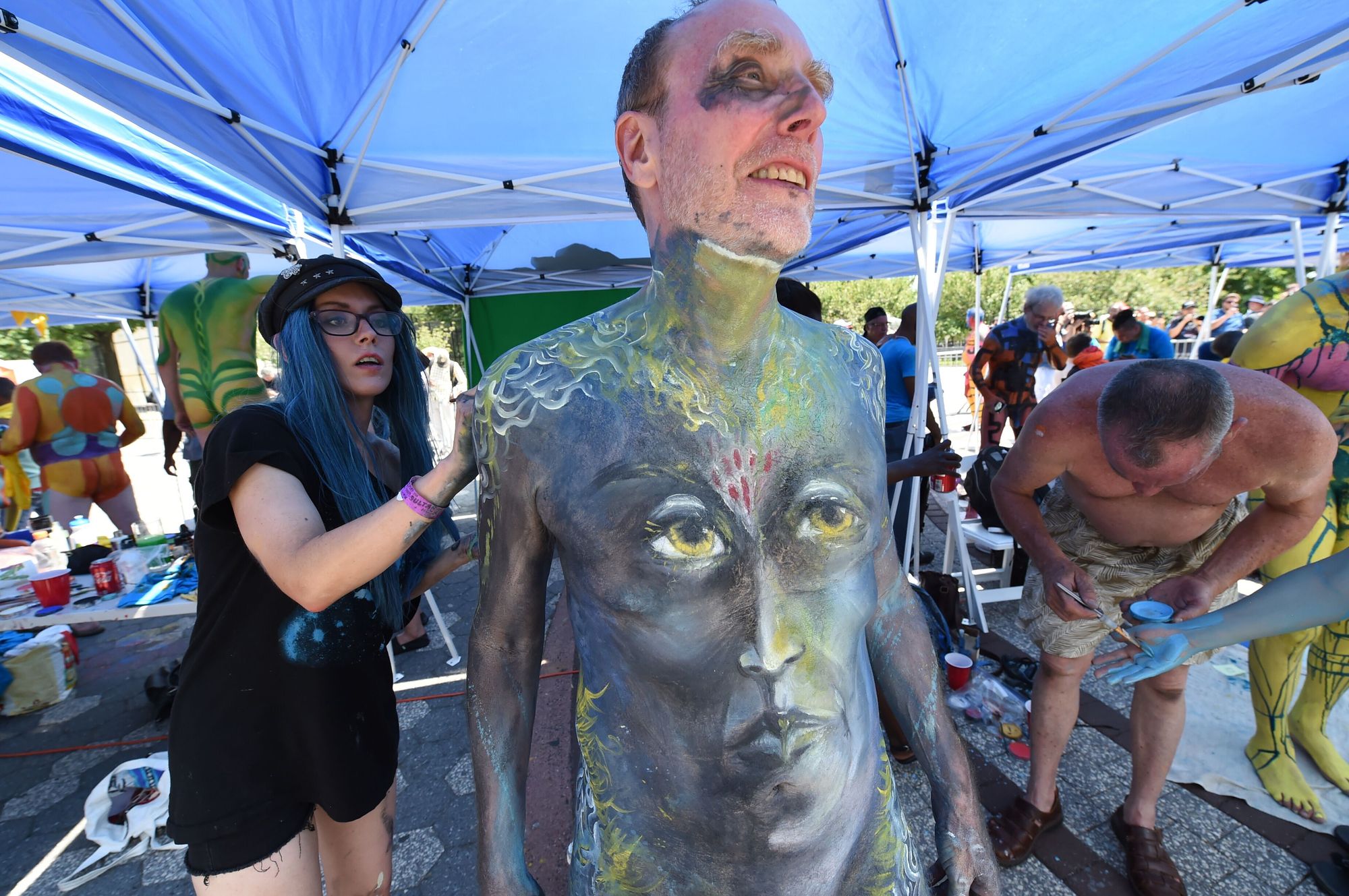
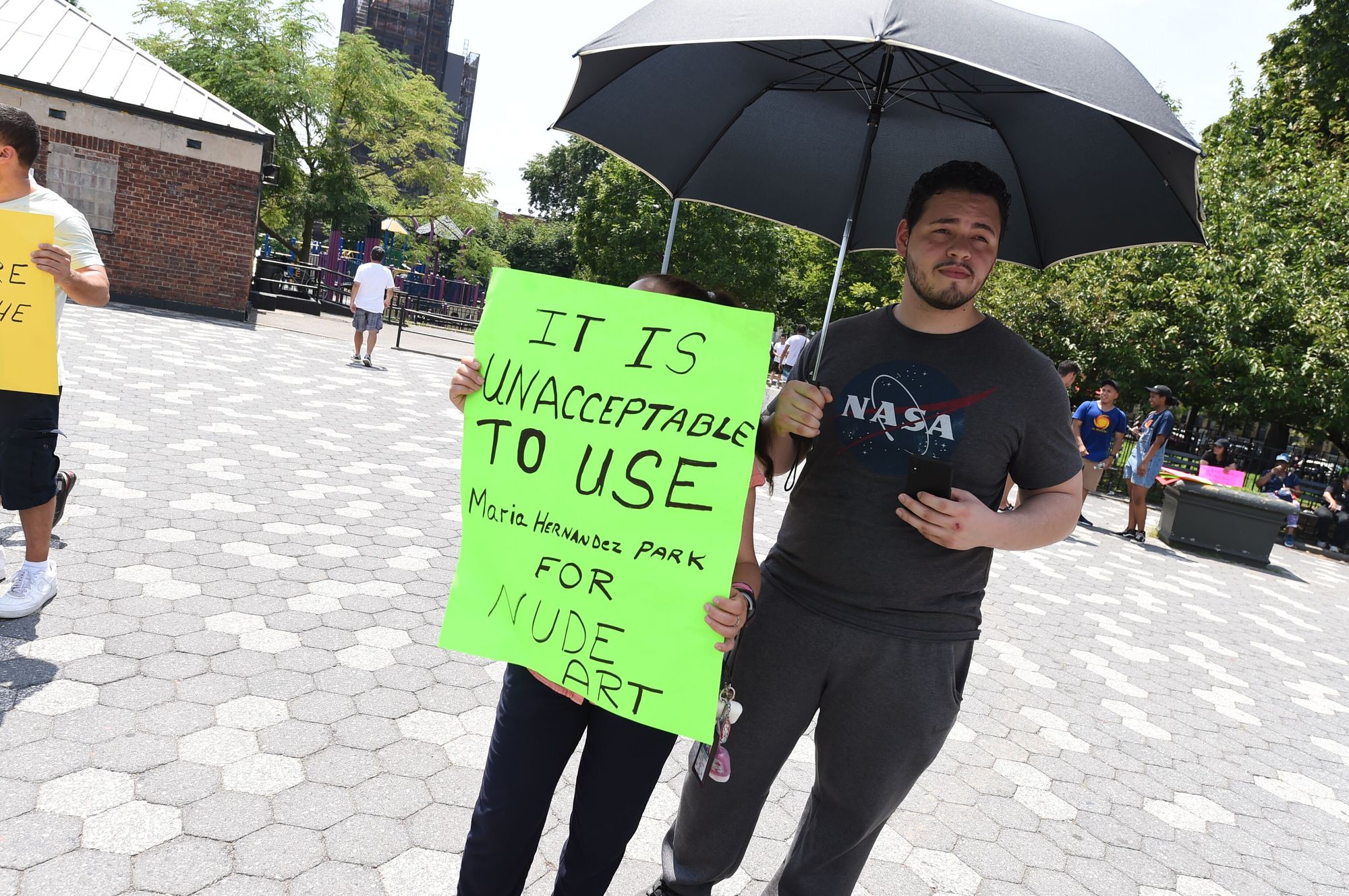
Parents brought their children to the park the next day, as they do any other day, and none of them protested. “I wasn’t here when it was happening, but I feel it is art,” said Mary Davis, a mother of two-year-old twins. “I’ve seen this art on the internet and I don’t have a problem with it. It’s really not vulgar or anything and I wouldn’t have minded being here with my children.”
Elizabeth Perez, a resident of Bushwick, sat on a park bench with her husband and watched as her four-year-old and 12-year-old played in the park. “I don’t think it is a big deal at all. It’s just art and it’s part of nature,” Perez said. “Everybody has it and my children will learn about it. My parents are very closed-minded, so we try to teach our children to be open-minded.”
Andy Golub, founder of the Human Connection, says at his on-line page that his art is “connecting to people in a more basic way,” and “that’s the power of art, the capacity to bring people together and to heal as individuals and society.”
In 2011, body painting participants were arrested for their public display, but were later dismissed. In 2013, the NYPD acknowledged that public nudity is legal for the sake of art. One year later, with the help of many people in both the nudist community and from the “body painting community,” Golub organized the first NYC Bodypainting Day. By 2016, Bodypainting Day had expanded to Amsterdam, Brussels, San Francisco, and other cities.
For more information, go to humanconnectionarts.org.




